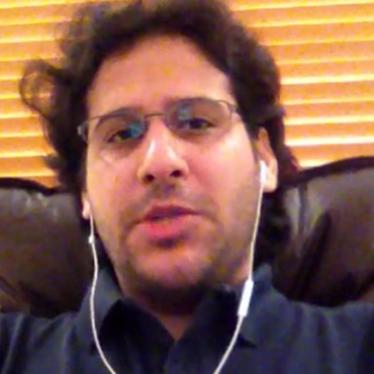Everybody considered it big news; Javier Solana in Damascus. Notwithstanding visits by a number of foreign ministers of European Union member states who have gone to Damascus after the isolation policy adopted by the EU toward Syria, the visit to Damascus by the High Representative for the Common Foreign and Security Policy at the EU was seen as a noteworthy indicator.
Thus it appears that to the European Union Syria’s significance is a result of it being a neighbor of Lebanon and Iraq, because Solana did not raise in his last meeting with the Syrian leadership the matters of internal reforms or human rights. This is spite of the European Union’s constant pride that defending human rights and supporting human rights defenders are central tenets of the EU’s foreign policy, as they appear in the guidelines that shape the policy of the EU—guidelines that must be applied to all communication and at all levels with other states.
But Solana neglected to raise these guidelines in Damascus. This in spite of worsening human rights conditions in Syria, as evidenced by the exceptional trials that continue to take place in accordance with the State of Emergency imposed since 1963 and the continuing detention of human rights activists who are tried for charges that threaten all opposition and activists in the public realm.
This silence is surprising and saddening because the EU has an important role to play in the area. The guidelines governing EU policy detail the necessity of intervention by the EU on behalf of human rights defenders and list practical steps to assist them. The European Union has initialed a Syrian-European partnership agreement in October 2004, the second article of which calls for the respecting all international human rights agreements.
The agreement has been frozen since the assassination of Prime Minister Rafiq al-Hariri. When the Europeans chose to use the partnership agreement it was not because it was in the interest of both parties, rather it was as “a mechanism to bring Syria to accept European demands to stop destabilizing the region and to respect the sovereignty of Lebanon and resolution 1701,” according to a European official.
Syria is alone in that nobody holds it to account, seeing it as a country who’s internal affairs only concern its citizens; the political regime ignores the interests and ambitions of its people and the European Union disregards it.
Applying pressure to stabilize the region, and especially Lebanon, is no doubt a noble goal, and it is achievable if the Syrian government respects the human rights of its own citizens and when it abides by the laws and the international covenants that it has committed itself to.
And so the more the EU disregards the matter of human rights, the more pleased the Syrian government becomes, having been given a reliable political reason to disregard human rights concerns and to view them as insular.
The Syrian government’s hand has been strengthened when it confronts human rights defenders and democratic reformers in Syrian jails today. Among them are Anwar al-Buni, Michael Kilo, Arif Dalila, Kamal al-Libnawi and others.
Radwan Ziadeh is a Syrian writer; Nadim Houry is Syria and Lebanon researcher at Human Rights Watch in New York.






